Роберт Бюттнер - Orphan's Destiny
Здесь есть возможность читать онлайн «Роберт Бюттнер - Orphan's Destiny» весь текст электронной книги совершенно бесплатно (целиком полную версию без сокращений). В некоторых случаях можно слушать аудио, скачать через торрент в формате fb2 и присутствует краткое содержание. Жанр: Боевая фантастика, на английском языке. Описание произведения, (предисловие) а так же отзывы посетителей доступны на портале библиотеки ЛибКат.
- Название:Orphan's Destiny
- Автор:
- Жанр:
- Год:неизвестен
- ISBN:нет данных
- Рейтинг книги:3 / 5. Голосов: 1
-
Избранное:Добавить в избранное
- Отзывы:
-
Ваша оценка:
- 60
- 1
- 2
- 3
- 4
- 5
Orphan's Destiny: краткое содержание, описание и аннотация
Предлагаем к чтению аннотацию, описание, краткое содержание или предисловие (зависит от того, что написал сам автор книги «Orphan's Destiny»). Если вы не нашли необходимую информацию о книге — напишите в комментариях, мы постараемся отыскать её.
Orphan's Destiny — читать онлайн бесплатно полную книгу (весь текст) целиком
Ниже представлен текст книги, разбитый по страницам. Система сохранения места последней прочитанной страницы, позволяет с удобством читать онлайн бесплатно книгу «Orphan's Destiny», без необходимости каждый раз заново искать на чём Вы остановились. Поставьте закладку, и сможете в любой момент перейти на страницу, на которой закончили чтение.
Интервал:
Закладка:
I stiffened. One thing Sergeant Ord had drilled into my little trainee’s brain was that soldiers followed orders and that, ultimately, those orders came from civilians elected by a civilian majority. Take away that discipline and America was a banana republic. “No, sir.”
The President lit his grin again. “Good! Stability. Reassurance. Team play. That’s what we’re going to need.”
“Of course, sir.”
He jerked a thumb toward the parade staging area. “That business before the parade, putting the casualties front and center in the limousine? The event was carefully arranged to project a positive message. Ruth Tway reports direct to me. She’s the best in her business. Why she volunteered to take you on I don’t know. But pay attention to her! We needed a young, hologenic leader in those shots. Someone to demonstrate that the world was safe to shift to a peacetime economy. To encourage the world to follow our lead on defense spending. What we got was a horrifying bunch of people showing off stumps. We won’t be seeing more of that counterproductive behavior from you, will we?”
I shrugged. “I’m just glad to be home, sir.”
“You dodge questions like a politician. That’s encouraging.”
To the President, maybe.
THIRTEEN
AFTER THE PRESIDENT LEFT, Tway handed me my new orders as I climbed into a limousine. Yes, handed. The Army, being somewhere back from the cutting edge of innovation, still delivered personnel orders on paper, like it was 1995. I climbed the steps into the hospital, turning the envelope in my hands, in no hurry to open it. It was a demotion, certainly. Why else would Tway have held the news unless it was bad?
I had been assigned a hospital room at Walter Reed, rooming with Howard Hibble while we both underwent two days of welcome-home medical tests. I opened the door and found Howard sitting on his bunk, hunched over a football-sized mechanical cockroach.
The roach swiveled its head my way and bounced up and down on the blanket on six metal legs.
“Jeeb!” I said.
Howard looked up at me and smiled. “Ordnance just got him cleaned.”
Like every other Tactical Observation Transport, this particular J-Series unit, unit E, Jeeb for short, was factory-wired with plastic explosive under his radar-absorbent skin. If captured, he would not only have blown his top-secret carcass into bb-shot, he would have taken some bad guys with him.
Therefore, all the way home from Ganymede, Jeeb had ridden in an ammunition bay, like the animated hand grenade he was. And I thought I had been lonely.
I sat next to him on the bunk and stroked his coat, radar-absorbent bristles like short-pile felt, while he trained round eyes, as large and flat as Oreos, on me.
It is, of course, absurd to pet a robot. But Jeeb was more than a robot. He was my robot. Maybe. “Howard, did you seal the deal?”
Howard tossed his head in the direction of the desk. “The title documents are on the table. Even as scrap, he cost you three months’ pay. You realize most people would think that’s an absurdly high price to pay for a worn-out bundle of nanochips.”
I picked up the old-fashioned papers. Certificate of Original Commissioning. Finding of Battle Damage, Equipment Obsolescence and Surplusage. Jeeb was battle-damaged and obsolete, all right. The explosion that had won the Battle of Ganymede had fried his circuits. Five years is forever in nanoputer technology. Jeeb was decrepit. Next was a Certification of Value of Salvageable Components. Then a Bill of Retransfer from United Nations Joint Command. Finally, a Bill of Sale and Salvage Title from the United States Department of the Army to Wander, Jason.
I swallowed. That was Jeeb’s life story, as far as the Army was concerned. Nowhere did the papers say that Jeeb’s wrangler, the GI who had been brain-linked to Jeeb by surgical implants, had been my bunkmate until the day he died. Nowhere did the papers say that Ari Klein had asked me, as his guts leaked into the dust of Ganymede, to adopt the robot who was closer to Ari than an old K-9 Corps dog to his handler.
Howard handed me a flat palm-holo receiver. “It’s not like implants. You and Jeeb will never be linked like Ari and Jeeb were. This cube’s not like implants. But when you switch it on, you’ll see what Jeeb sees, visible spectrum, infrared or ultraviolet, hear what Jeeb hears, audio or electromagnetic, in your earpiece. He’ll translate foreign languages, teach them to you while you sleep. He’ll fly at near the speed of sound or run as fast as a cheetah, anywhere you tell him to. And he’ll never gripe or be too tired to do anything you ask of him.”
“And what does he want from me, Howard?”
Jeeb flexed his three right-side legs and rolled onto his back. I scratched his ventral armor. Jeeb had a way of cocking his head that mimicked what Ari used to do when he heard a joke he liked.
Howard shrugged. “His creator, Lockheed, says he doesn’t want anything. There are no nerve endings in that belly you’re scratching. He’s just a machine.”
“You believe that, Howard?”
Another shrug. “Even chondrichtyian fishes recognize individual humans and display affection behaviors. He’s a lot smarter than a sting ray. There’s plenty of room in his thinking apparatus to imprint human behaviors and to remember. Oh, you also granted us rights to recover his survey data from his Ganymede overflights.”
It measured the Slug War’s irrelevance to the post-war world that data gathered about another world had been sold off as part of a war souvenir.
Jeeb, Howard, and I spent an hour that afternoon outdoors, playing fetch with a tennis ball. We might have played longer, but brain-link, even the watered-down excuse for it that we shared, let Jeeb sense where I was going to throw the ball. So the old pretend to throw and hide it behind my back didn’t amuse either of us.
Besides, being outdoors, even in Washington, halfway down the USA toward Florida, depressed me. Earth would need a decade to recover from the near nuclear winter the Slugs had brought down on her. Every day dawned gray and dry. Grass wasn’t green and trees quivered leafless in perpetual chill. Temperate crops had relocated to the equator. That made for some strange holos of overalled Nebraskans saddling up their combines on the Brazilian plains.
Jeeb had just dropped the tennis ball at my feet and telescoped his wings for the hundredth time when I realized that I hadn’t read my orders. But now, I had run out of other things to do.
I sighed, tugged them from my pocket, and slit the envelope with a fingernail. Howard moved downwind and lit a cigarette.
I had read half a page before I realized what I was reading. I blinked, then stiffened.
Howard picked up the tennis ball, looked away from me, and chucked it for Jeeb to chase. Howard voluntarily doing anything athletic was as improbable as a tap-dancing trout.
I rolled the paper and waved it at him. “You knew about this! But you didn’t tell me!”
He shrugged. “That wouldn’t have changed it.”
I crumpled the page and threw it at him. “You did know!”
Jeeb hovered, optic sensors swiveling between the tennis ball and the paper knuckle ball I bounced off Howard’s chest.
Howard watched my orders hit the dirt, then turned his palms up. “Don’t be such a pooby!”
I had been trying to teach Howard to swear for years. Drill sergeants spun in their graves, from Fort Benning to Fort Carson. I ground my teeth. “A pooby?”
He flapped a hand at me. “Don’t worry. You’ll love it!”
FOURTEEN
AT SIX HUNDRED HOURS the next morning, during my post-ten-K-run shave, our infirmary-room door flew open as a fist rapped the doorjamb.
“Good morning!” Tway, the White House publicity woman, stalked in like a drill sergeant into a barracks. She centered herself in the room and crossed her arms. “We’re late.”
Читать дальшеИнтервал:
Закладка:
Похожие книги на «Orphan's Destiny»
Представляем Вашему вниманию похожие книги на «Orphan's Destiny» списком для выбора. Мы отобрали схожую по названию и смыслу литературу в надежде предоставить читателям больше вариантов отыскать новые, интересные, ещё непрочитанные произведения.
Обсуждение, отзывы о книге «Orphan's Destiny» и просто собственные мнения читателей. Оставьте ваши комментарии, напишите, что Вы думаете о произведении, его смысле или главных героях. Укажите что конкретно понравилось, а что нет, и почему Вы так считаете.

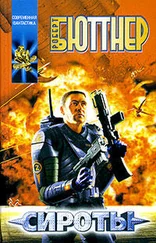

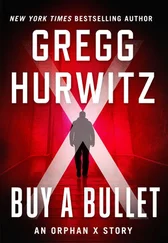
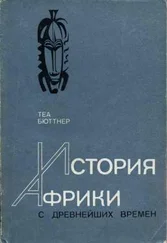
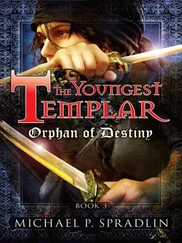
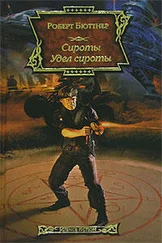
![Дэн Бюттнер - Где живет счастье [Правила жизни самых счастливых людей планеты] [litres]](/books/395574/den-byuttner-gde-zhivet-schaste-pravila-zhizni-samyh-thumb.webp)



